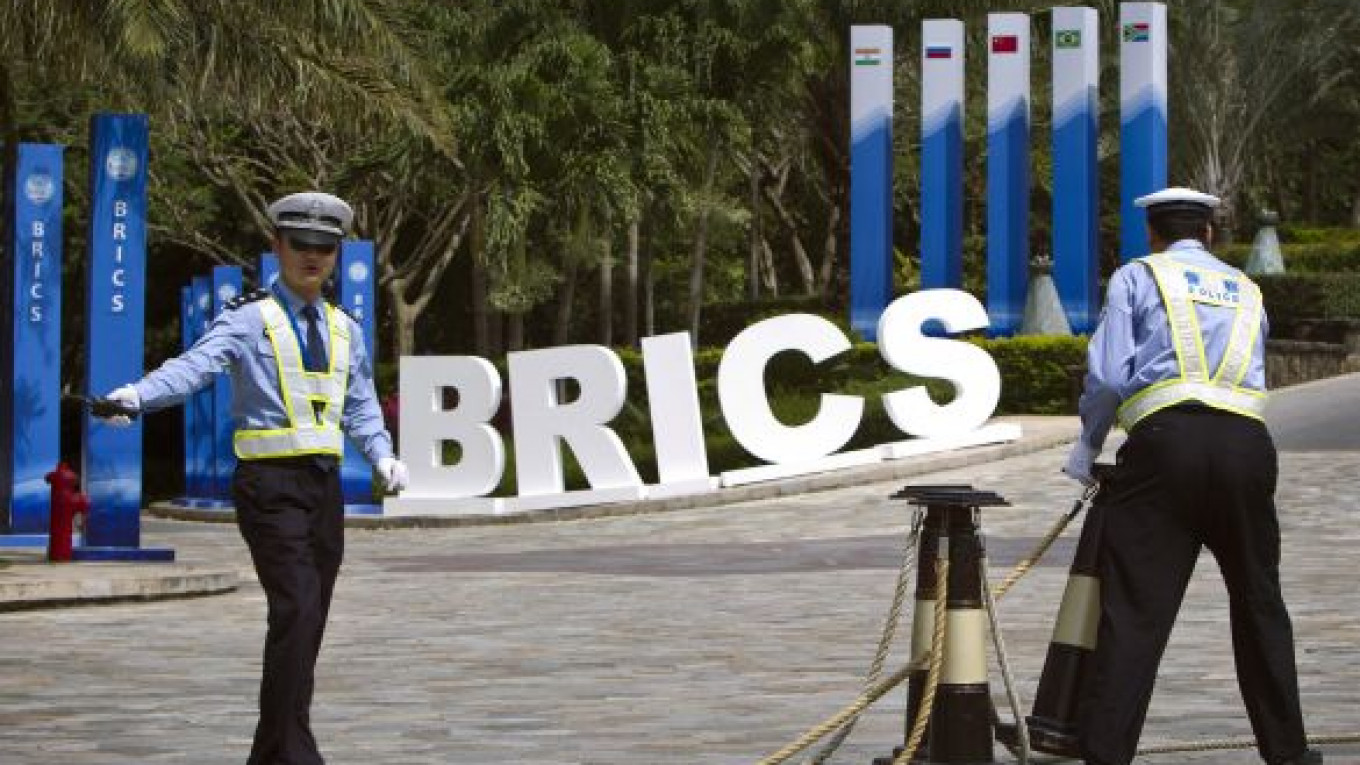President Dmitry Medvedev will seek to use the country's energy might to win Chinese investment as he travels to China for the annual summit of BRICS nations.
Medvedev will meet with the leaders of Brazil, India, China and South Africa on April 14 in Sanya, China, attend Asia's annual Boao Forum and visit Hong Kong, according to the Kremlin. He also plans bilateral talks with Chinese President Hu Jintao.
China, the world's biggest energy consumer, became Russia's largest trading partner last year, with trade jumping 50 percent to $59 billion, according to the Russian Economic Development Ministry. Energy accounted for more than 55 percent of exports to China.
Russia promised to supply China with all the natural gas it needs for economic development under an agreement signed during Medvedev's September visit to Beijing, Deputy Prime Minister Igor Sechin said at the time. Deliveries may start in 2015. The price is still being negotiated.
Russia agreed in 2009 to supply China with oil for 20 years in return for $25 billion of loans to state oil company Rosneft and oil pipeline monopoly Transneft. Commercial deliveries began in January, and China is seeking to increase shipments to 30 million tons a year from the agreed 15 million tons.
China has also asked Russia to build two more 1,000-megawatt nuclear reactors at the Tianwan complex near Shanghai. Atomstoiexport completed construction of two units at the site in 2007.
More than 60 Russian business leaders will attend the BRICS summit, said Sergei Sanakoyev, head of the Russian-Chinese Center of Trade and Economic Cooperation.
"We have colossal potential for industrial cooperation in the sphere of technology, construction and aerospace that is not being used," Sanakoyev said. "Russia needs to use its natural resources to trade in for industrial cooperation."
Chinese investment in Russia, including the loans to oil companies, reached almost $28 billion last year, while Russia invested $150 million in China. Equipment and machinery accounted for 8 percent of Russian exports to China and 50 percent of China's shipments to Russia, according to the Economic Development Ministry.
Arms exports to China, once Russia's largest client, have all but dried up.
China stopped buying Russian fighter planes in 2005 and in 2007 India became the biggest purchaser of Russian weapons, said Konstantin Makiyenko, deputy head of the Center for the Analysis of Strategies and Technologies.
Medvedev has made improving ties with China a priority, pushing for more engagement with China through BRICS and the Shanghai Cooperation Organization security alliance, said Council on Foreign and Defense Policy analyst Fyodor Lukyanov.
"China in many respects is becoming a key global power and a lot will depend on how it develops, including Russia's position in the world," he said.
A Message from The Moscow Times:
Dear readers,
We are facing unprecedented challenges. Russia's Prosecutor General's Office has designated The Moscow Times as an "undesirable" organization, criminalizing our work and putting our staff at risk of prosecution. This follows our earlier unjust labeling as a "foreign agent."
These actions are direct attempts to silence independent journalism in Russia. The authorities claim our work "discredits the decisions of the Russian leadership." We see things differently: we strive to provide accurate, unbiased reporting on Russia.
We, the journalists of The Moscow Times, refuse to be silenced. But to continue our work, we need your help.
Your support, no matter how small, makes a world of difference. If you can, please support us monthly starting from just $2. It's quick to set up, and every contribution makes a significant impact.
By supporting The Moscow Times, you're defending open, independent journalism in the face of repression. Thank you for standing with us.
Remind me later.






